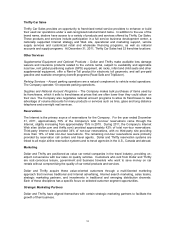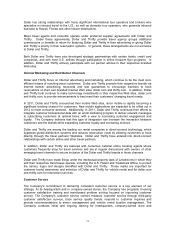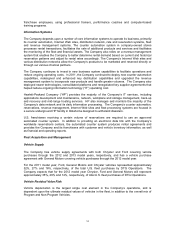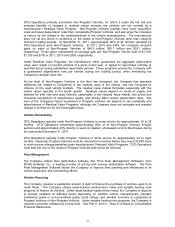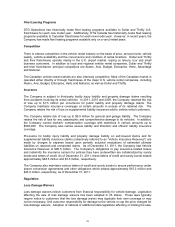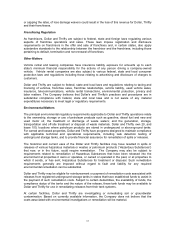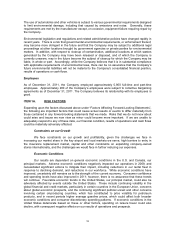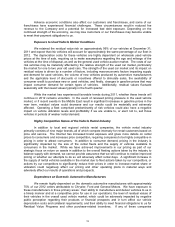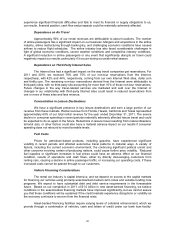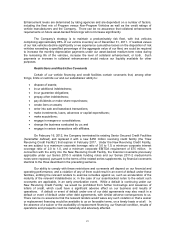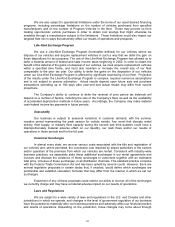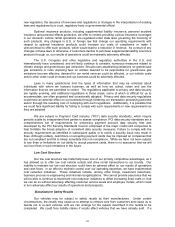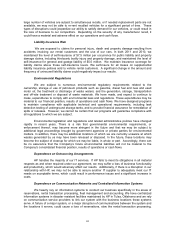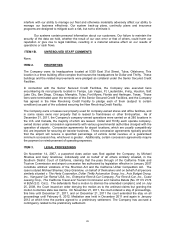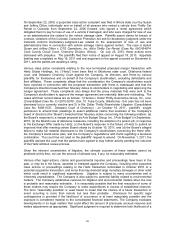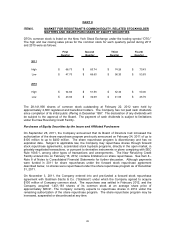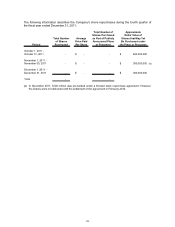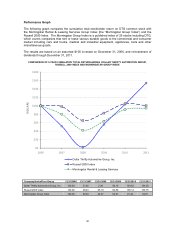Thrifty Car Rental 2011 Annual Report Download - page 24
Download and view the complete annual report
Please find page 24 of the 2011 Thrifty Car Rental annual report below. You can navigate through the pages in the report by either clicking on the pages listed below, or by using the keyword search tool below to find specific information within the annual report.We are also subject to operational limitations under the terms of our asset-backed financing
programs, including percentage limitations on the number of vehicles purchased from specified
manufacturers and on the number of Program Vehicles in the fleet. These may prevent us from
making opportunistic vehicle purchases in order to obtain cost savings that might otherwise be
available through a manufacturer subject to the limitations. These limitations could also impact our
targeted fleet mix in ways that adversely affect our results of operations and prospects.
Like-Kind Exchange Program
We use a Like-Kind Exchange Program (hereinafter defined) for our vehicles where we
dispose of our vehicles and acquire replacement vehicles in such a way that we defer the gain on
these dispositions for tax purposes. The use of this Like-Kind Exchange Program has allowed us to
defer a material amount of federal and state income taxes beginning in 2002. In order to obtain the
benefit of the deferral of the gains on disposal of our vehicles, we must acquire replacement vehicles
within a specified time frame, and must also maintain or increase the overall size of our fleet
comparable to the prior tax year. Our ability to defer the gains on the disposition of our vehicles
under our Like-Kind Exchange Program is affected by significant downsizing of our fleet. Projection
of the results under the Like-Kind Exchange Program is complex, requires numerous assumptions
and is not subject to precise estimation. Actual results depend upon future sale and purchase
transactions extending up to 180 days after year-end and actual results may differ from current
projections.
The Company’s ability to continue to defer the reversal of prior period tax deferrals will
depend on a number of factors, including the size of the Company’s fleet, as well as the availability
of accelerated depreciation methods in future years. Accordingly, the Company may make material
cash federal income tax payments in future periods.
Seasonality
Our business is subject to seasonal variations in customer demand, with the summer
vacation period representing the peak season for vehicle rentals. Any event that disrupts rental
activity, fleet supply, or industry fleet capacity during the second and third quarters could have a
disproportionately material adverse effect on our liquidity, our cash flows and/or our results of
operations in those periods and for the full year.
Customer Surcharges
In almost every state, we recover various costs associated with the title and registration of
our vehicles and, where permitted, the concession cost imposed by airport authorities or the owners
and/or operators of the premises from which our vehicles are rented. Consistent with industry-wide
business practices, we separately state these additional surcharges in our rental agreements and
invoices and disclose the existence of these surcharges to customers together with an estimated
total price, inclusive of these surcharges, in all distribution channels. This standard practice complies
with the Federal Trade Commission Act and has been upheld by several courts. However, there are
several legislative proposals in certain states that, if enacted, would define which surcharges are
permissible and establish calculation formulas that may differ from the manner in which we set our
surcharges.
Enactment of any of these proposals could restrict our ability to recover all of the surcharges
we currently charge and may have a material adverse impact on our results of operations.
Laws and Regulations
We are subject to a wide variety of laws and regulations in the U.S. and Canada and other
jurisdictions in which we operate, and changes in the level of government regulation of our business
have the potential to materially alter our business practices and adversely affect our financial position
and results of operations. Depending on the jurisdiction, those changes may come about through
22


